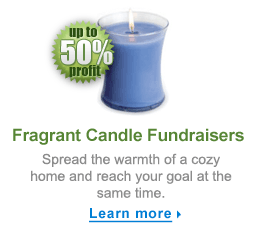1. Failure to ask for a gift. Don’t assume that your donors will know what you want them to do. Ask for a gift. And make sure to include a reply envelope to make it easy for your donors to send their gift to you.
2. Using a dirty list. Keeping your list clean is one of the most important things you can do to ensure the success of your appeal. Run your entire list through an NCOA update annually (this is required by the USPS for non-profit rates and every six months on first class pre-sort). Always correct addresses of donors who have moved. Make sure to exclude deceased donors from your list and anyone else who doesn’t need to receive your appeal.
3. “Dear Friend…” Failing to personalize your letter to each donor is detrimental to your appeal and can send the wrong message. If someone has been donating to your organization for several years, you are insulting them by not using their name. It could also send the message that you are looking for an easy way out in the letter preparation process. Using a window envelope with the recipient’s name and address showing through can reduce the labor involved in preparing the mailing and keep costs down.
4. Bad timing. Timing is everything in direct mail. Are you mailing at the best times of the year? Are you coordinating your mailings with your other activities to maximize your media exposure? Have you planned your mailing so that you have plenty of time to prepare it well or are you rushed for time? If your mailing has a specific “reply by” date, have you allowed the recipient enough time to respond?
5. Asking for the wrong amount. Are you asking your donors for the right amount? Base your ask string on the donor’s last gift amount so you aren’t asking for too much or too little. Are you tying the ask amount to something meaningful in your organization? “Your gift of $1.74 will provide a hot meal to a homeless person”. Uneven amounts are more believable.
6. Ignoring automation benefits. In order to take advantage of the best postage rates, your return envelope must have the appropriate postal markings. The size, shape, and color of your envelope must be considered for USPS regulations. Planning your mailing with a knowledgeable mailer can save you money on postage.
7. “Support Our Annual Fund”. Donors don’t want to support your annual fund. They want to make a difference in the lives of the people you serve. Tell a story of someone you have helped. Help the donor see how his/her donation will make an impact.
8. Poor quality letter. An experienced printing shop can help you get the best quality appeal in the mail. You don’t want to send out something that looks like a copy of a bad copy.
9. Paying too much for postage. Are you taking advantage of pre-sorted nonprofit postage rates? Did you know that you can use a stamp and still get lower rates?
10. Failure to measure. You should set goals for each appeal and measure its success. Are you measuring your success rates? Do you know what your response rate was on your last appeal? What was your average gift size? Did you have any major donors who self-identified themselves? What did it cost you to raise a dollar?
About the Author: Sandy Rees has served non profit organizations in Tennessee including Second Harvest Food Bank, and the Joy of Music School. She is an active member of the Association of Fundraising Professionals (AFP) and has achieved the CFRE (Certified Fundraising Executive) certification. She is a co-author of the book 7 Essential Elements to Raising Money by Mail.








